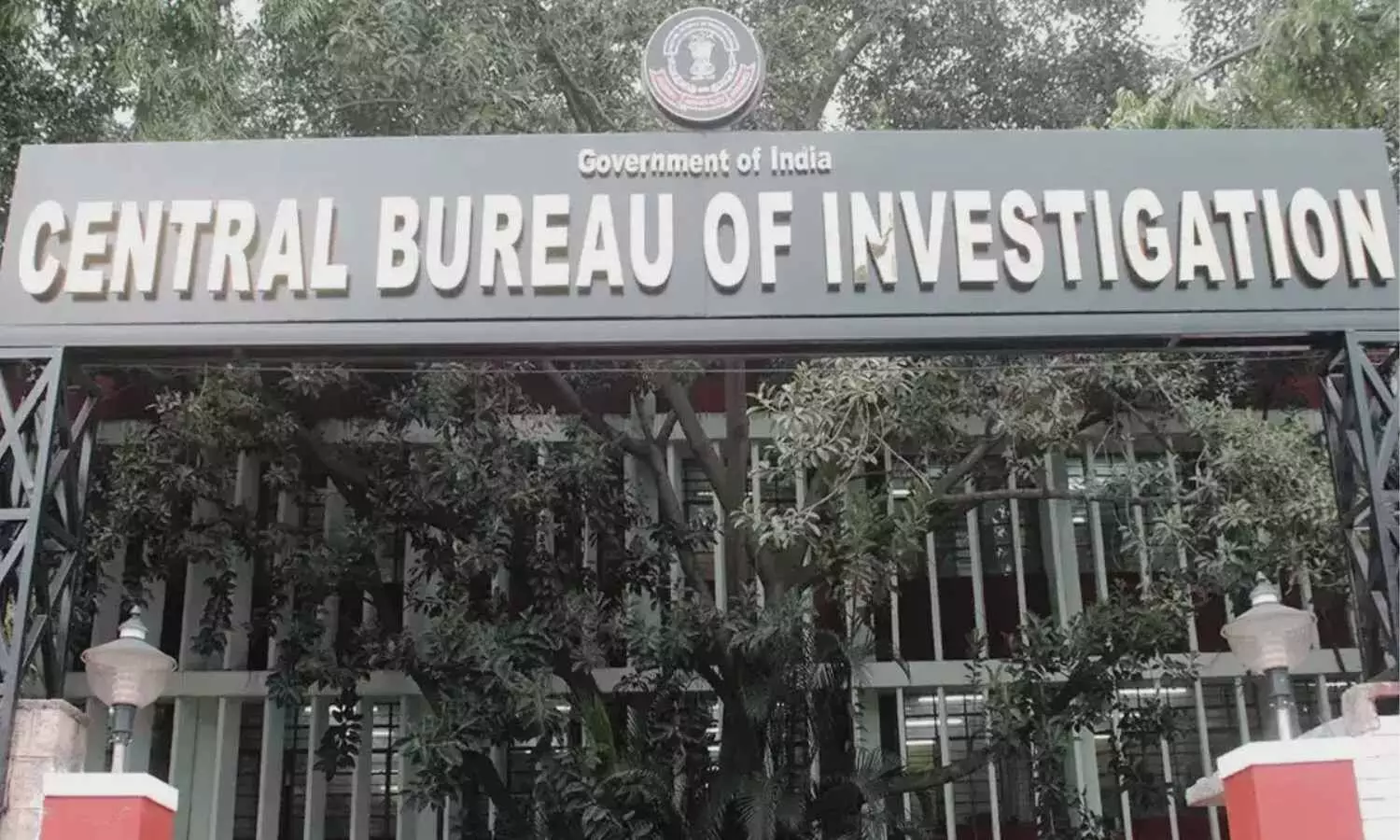- Home
- Medical news & Guidelines
- Anesthesiology
- Cardiology and CTVS
- Critical Care
- Dentistry
- Dermatology
- Diabetes and Endocrinology
- ENT
- Gastroenterology
- Medicine
- Nephrology
- Neurology
- Obstretics-Gynaecology
- Oncology
- Ophthalmology
- Orthopaedics
- Pediatrics-Neonatology
- Psychiatry
- Pulmonology
- Radiology
- Surgery
- Urology
- Laboratory Medicine
- Diet
- Nursing
- Paramedical
- Physiotherapy
- Health news
- Fact Check
- Bone Health Fact Check
- Brain Health Fact Check
- Cancer Related Fact Check
- Child Care Fact Check
- Dental and oral health fact check
- Diabetes and metabolic health fact check
- Diet and Nutrition Fact Check
- Eye and ENT Care Fact Check
- Fitness fact check
- Gut health fact check
- Heart health fact check
- Kidney health fact check
- Medical education fact check
- Men's health fact check
- Respiratory fact check
- Skin and hair care fact check
- Vaccine and Immunization fact check
- Women's health fact check
- AYUSH
- State News
- Andaman and Nicobar Islands
- Andhra Pradesh
- Arunachal Pradesh
- Assam
- Bihar
- Chandigarh
- Chattisgarh
- Dadra and Nagar Haveli
- Daman and Diu
- Delhi
- Goa
- Gujarat
- Haryana
- Himachal Pradesh
- Jammu & Kashmir
- Jharkhand
- Karnataka
- Kerala
- Ladakh
- Lakshadweep
- Madhya Pradesh
- Maharashtra
- Manipur
- Meghalaya
- Mizoram
- Nagaland
- Odisha
- Puducherry
- Punjab
- Rajasthan
- Sikkim
- Tamil Nadu
- Telangana
- Tripura
- Uttar Pradesh
- Uttrakhand
- West Bengal
- Medical Education
- Industry
CBI exposes NMC inspection Racket: How a Pan India syndicate was engineering the Biggest Medical Education Scam

New Delhi: How did dozens of substandard medical colleges across India gain official recognition despite failing basic requirements? The answer, according to the Central Bureau of Investigation (CBI), lies in a deeply embedded corruption racket operating from within the Union Health Ministry and National Medical Commission (NMC).
In what is now being dubbed India’s biggest medical education scam, the CBI has uncovered an extensive criminal conspiracy involving ministry officials, NMC assessors, middlemen, and medical college administrators.
The network allegedly manipulated inspection process, leaked confidential regulatory data, and accepted bribes running into crores to facilitate fraudulent approvals for medical institutions across six states. So far, raids have reportedly been conducted on 40 locations across the country, leading to the registration of an FIR against 34 individuals, including officials from the NMC and the Union Health Ministry.
How the Scam Was Engineered from Inside the Health Ministry
At the heart of the scheme were eight officials from the Health Ministry, who allegedly formed a covert unit within the government to provide illegal access to confidential files and regulatory updates. Named in the FIR are- Poonam Meena, Dharamvir, Piyush Malyan, Anup Jaiswal, Rahul Srivastava, Deepak, Manisha and Chandan Kumar.
These officials are accused of photographing internal documents and sharing sensitive information- including inspection schedules, file notings, and the identities of designated assessors-with intermediaries linked to private medical colleges. In return, they allegedly accepted bribes routed through hawala and legal channels.
How Colleges Used Leaked Data to Stage Fake Compliance
According to the CBI FIR, the pre-inspection leaks enabled colleges to fabricate conditions of compliance before assessors even arrived:
Ghost faculty were temporarily employed or impersonated
Fake patients were admitted to appear as operational hospitals
Tampered biometric systems were used to fake attendance records
Assessors were bribed or misled into giving favourable reports.
"Such prior disclosures have enabled medical colleges to orchestrate fraudulent arrangements, including the bribing of assessors to secure favourable inspection reports, the deployment of non-existent or proxy faculty (ghost faculty), and the admission of fictitious patients to artificially project compliance during inspections, and tampering with the biometric attendance systems to falsify," the FIR said.
How Bribes were Routed
The money trail uncovered by investigators points to a well-oiled financial operation, with crores of rupees exchanged through middlemen. These bribes were paid not only to ministry insiders but also to members of the National Medical Commission (NMC) inspection teams.
In a bizarre twist, a portion of these bribes- handled by former Medical Assessment and Rating Board (MARB) member Jitu Lal Meena-was allegedly used to construct a Rs 75 lakh temple in Rajasthan.
What the Scam Means for Medical Education
This insider racket gravely undermined the credibility of the medical education system. Institutions lacking basic infrastructure and qualified staff were certified as compliant, posing a direct risk to patient safety and future healthcare quality.
The syndicate's actions not only compromised national standards but also allowed fraudulent institutions to legally admit students, potentially churning out undertrained or unqualified doctors.
What Happens Next?
So far, six people have been arrested, including three doctors. allegedly caught accepting a Rs 55 lakh bribe to provide a favourable inspection report to Rawatpura Institute of Medical Sciences and Research. The arrested individuals have been identified as Dr Manjappa C.N., Dr. Chaitra M.S., Dr. Ashok D. Shelke, Atul Kumar Tiwari (Administrative Director, SRIMSR), Sathisha A., and Ravichandra K. All six were produced before a special CBI court.
The agency named 34 individuals in an FIR, including eight health ministry officials, a National Health Authority official and five doctors who were part of the National Medical Commissioner (NMC) inspection team. Tata Institute of Social Sciences Chairman D P Singh, Gitanjali University Registrar Mayur Raval, Rawatpura Institute of Medical Sciences and Research Chairman Ravi Shankar ji Maharaj and Index Medical College Chairman Suresh Singh Bhadoria have also been named in the FIR.
Legal proceedings are underway under the Prevention of Corruption Act and the Bharatiya Nyaya Sanhita (BNS).
The investigation is expanding, with the CBI examining data and the role of intermediaries operating across multiple states. More arrests and charges are expected in the coming weeks.
How Deep Does the Rot Go?
This scandal has exposed a crisis of ethics and accountability in India’s health and education governance. What was meant to be an independent regulatory process has been reduced to a transaction-driven farce- one that risks the lives of future patients and the trust placed in India's healthcare system.
As investigations continue, the spotlight now shifts to systemic reforms in medical colleges' recognition and accreditation, ensuring that quality, not cash, determines who gets to train the country’s next generation of doctors.
Garima joined Medical Dialogues in 2017 and currently works as the Senior Editor. She oversees coverage of all healthcare topics, with a focus on medico-legal cases, regulatory updates, decisions by NMC, DCI and medical councils, developments in medical education, government policies, and news on medical and dental colleges. She holds a Master’s degree in Journalism and Mass Communication and can be contacted at editorial@medicaldialogues.in | 011-43720751.



